When it comes to healthy food trends the times are changing. From dairy-free to plant-based alternatives, the food industry has evolved in response to the health and wellness trends that continue to emerge. As health-conscious consumers, it’s an ongoing quest to find the right healthy foods that satisfy our hunger and meet our nutritional needs.
So, what food trends are actually healthy? What food trends should be avoided? The following topics generated a lot of buzz at the 2020 Academy of Nutrition and Dietetics Food & Nutrition Conference & Expo. So we asked top nutrition experts about the new foods that are rising in popularity and which ones we should embrace. Get ready to load up your grocery cart.
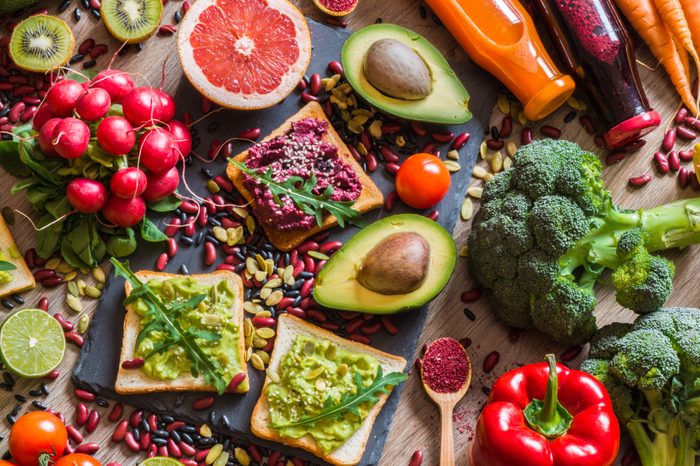
Plant-based eating
In 2020, eating plants should be more popular than ever: “This trend is increasing in popularity because of personal health benefits, as well as because of planet sustainability,” says Jacqueline Gomes, RDN, MBA, a nutrition consultant and corporate nutritionist for Foodtown stores in New Jersey and the New York metro area. “Research suggests that people who follow a predominately plant-based diet tend to have a lower risk of chronic diseases such as obesity, [type 2] diabetes, and heart disease.”
To eat plant-based, you don’t have to go all-out vegetarian or vegan. Start small by incorporating a few plant-based meals a week, such as a vanilla smoothie or a vegetarian rice bowl. Keep ingredients on hand, such as nuts, seeds, and nutritional yeast that lend themselves to easy plant-based meals. You can get a healthy amount of protein from these foods. A tablespoon of Bragg Nutrition Yeast Seasoning, for example, boasts three grams of satiating protein.
$21.00
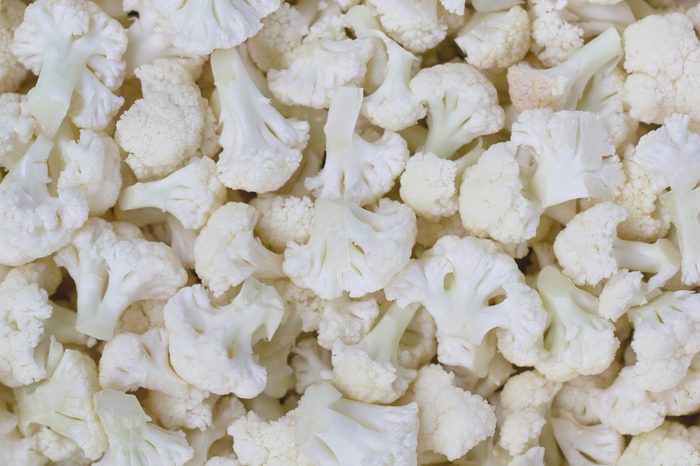
Cauliflower-based foods
“Cauliflower has been the ‘it’ vegetable for the past few years—roasted, riced, and smothered into dips—and I don’t see its popularity waning anytime soon,” says Liz Weiss, MS, RDN, a dietitian nutritionist and co-author of Eat and Color the Alphabet. “This nutritious cruciferous veggie is popular in home kitchens, but it’s also popping up at supermarkets in pizza crusts, the breading on chicken tenders, and in savory sauces.” You can find cauliflower as an ingredient in cereal and jarred vegan Alfredo sauce, too.
$38.80
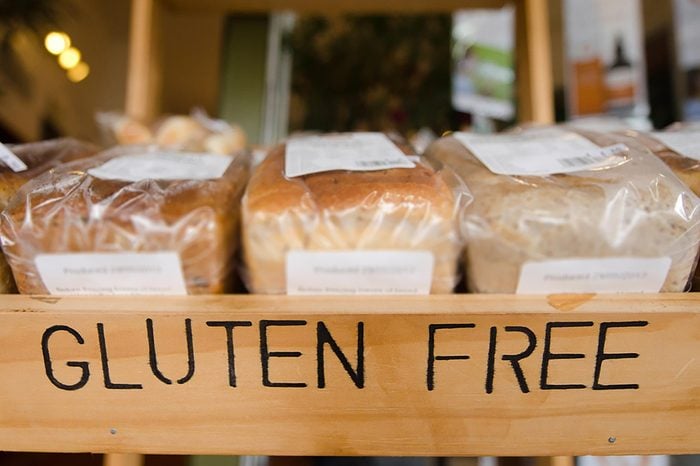
Gluten alternatives
These days, you can buy a gluten-free version of pretty much any fave food. “For people who can’t tolerate gluten but still want to enjoy the taste of foods like tortillas, many companies are creating alternatives with gluten-free flours,” says Natalie Rizzo, MS, RD, a dietitian in New York. “Specifically, Siete Family Foods has gluten-free tortillas made from chickpea, almond, cashew, and cassava flours that taste just as good as regular tortillas.” You can also find gluten-free crackers, cookies, pasta, and more on supermarket shelves. Curious about the gluten-free foods nutritionists love the most?
$36.64
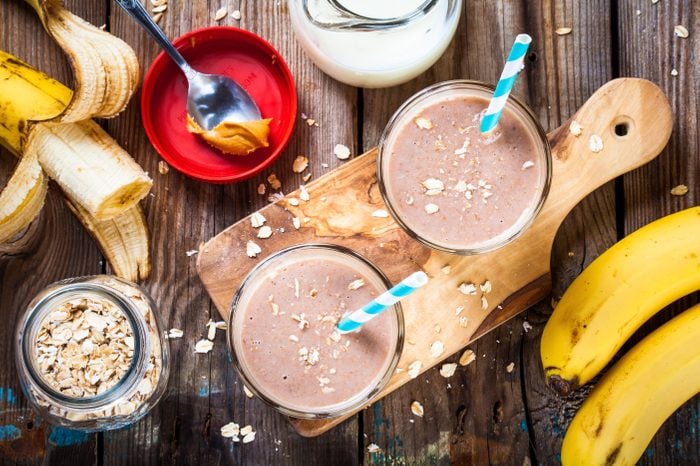
Gut-friendly foods
“We’ll start seeing probiotics and prebiotics in pre-made smoothies, powders, granolas, and more,” says Theresa Gentile, MS, RDN, a dietitian nutritionist in Brooklyn, New York. “If a product can guarantee it has a therapeutic amount of live active cultures, these foods can be a great way to get support for the microbiome. A probiotic smoothie could be a healthful on-the-go breakfast item, and granola can be sprinkled over plain yogurt for an extra dose of probiotics.” You can blend probiotic and prebiotic powders into smoothies. Find out the probiotics brands nutritionists trust the most.
$27.99
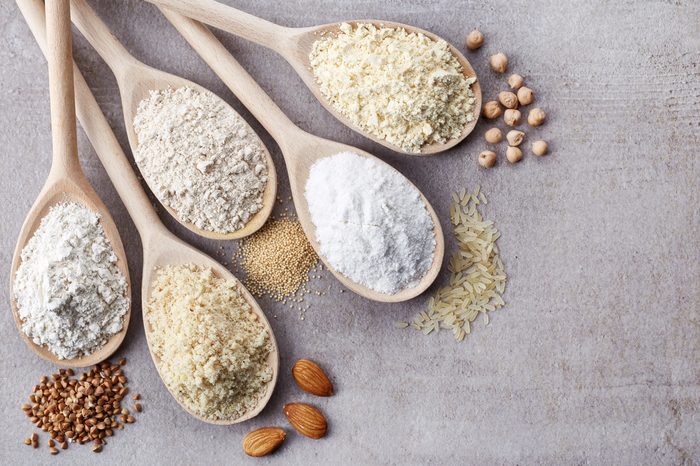
Alternative flours
“Following the huge success of cauliflower flour and the popularity of the keto diet, I think we will see many more alternative flour options in 2020,” says Keri Gans, RDN, a dietitian nutritionist in New York City and author of The Small Change Diet. “From banana and chickpeas to almonds and coconut, these naturally grain-free flours provide more vitamins and minerals than typical white flour. They can easily be swapped for white flour in many recipes that include breaded fish or chicken—or they can be used as a healthier muffin option.” Indeed, innovative flours also top the Whole Foods Market list of top 2020 food trends.
$10.85
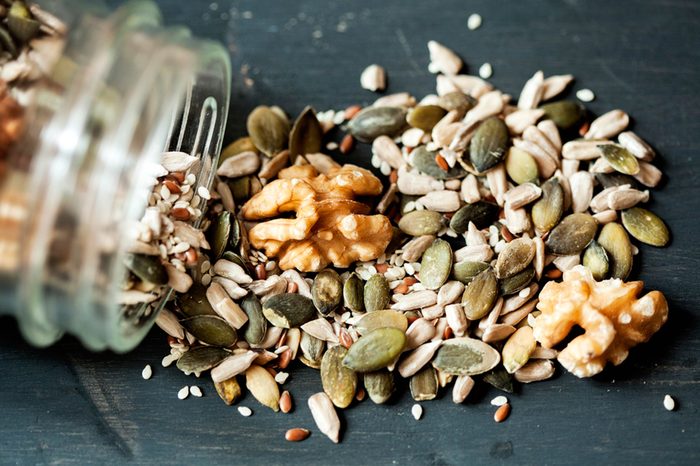
Seeds in everything
“While nuts are known as a healthy snack, seeds are their smaller counterpart that are often overlooked,” says Rizzo, a nutrition partner with Bob’s Red Mill. “As a source of protein and healthy fats, seeds are becoming a more popular ingredient and will likely be everywhere in 2020. I personally love Bob Red Mill’s Golden Flaxseeds as an addition to oatmeal, salads, smoothies, and even for adding crunch to stir-fries. They are naturally gluten-free, an excellent source of fiber, and have 6 grams of protein per serving.”
$18.99
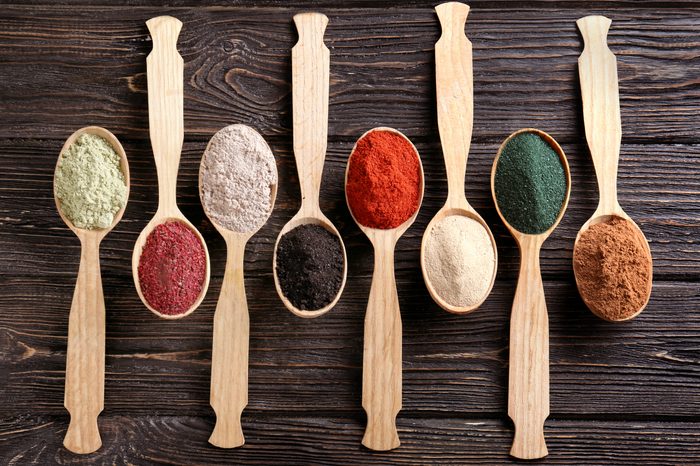
Adaptogens as ingredients
“Adaptogens are herbs and plants that may provide benefits relating to fighting inflammation, alleviating stress, hormone imbalances, or immune function,” says Angie Asche, MS, RD, CSSD, a sports dietitian in Lincoln, Nebraska. “Examples include turmeric, maca powder, ashwagandha, and holy basil. Food manufacturers are already beginning to add adaptogens to food and beverage products. You can also reap the benefits by using these herbs and spices in your own cooking. Add turmeric to spice up a curry dish or maca powder to a smoothie.” Get the food rules of an anti-inflammatory diet.
$9.99
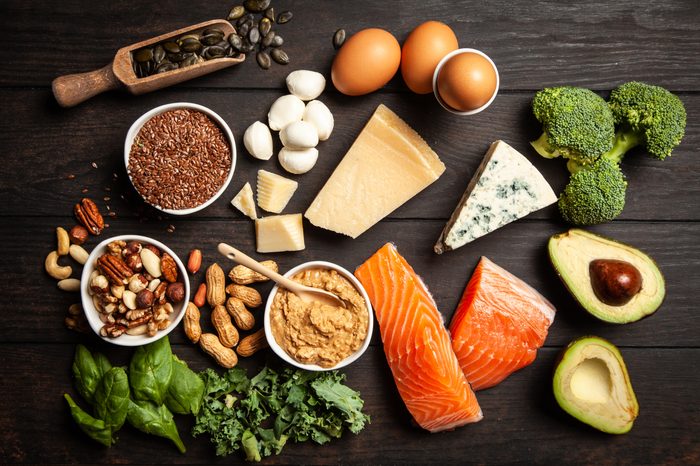
Healthier keto-friendly foods
“The keto diet continues to soar in popularity, but a focus on eating foods rich in fat can be detrimental to health if not done correctly,” says Erin Palinski-Wade, RD, CDE, a dietitian in Sparta, New Jersey and author of 2 Day Diabetes Diet. “Foods rich in saturated fat and excess sodium may be keto-friendly, but eating these foods often can have a negative impact on heart health. As the trend continues, more people are becoming aware of the need to follow a clean keto diet in which low-carb, high-fat foods come from unsaturated fats and plant-based sources. This style of keto eating can provide weight loss without being damaging to health.” Examples of healthy keto foods include avocado, nut butters, nuts, and seeds.
$13.50

Out-of-the-box mocktails
Want a nightcap without the alcohol? “Creative mocktails will continue to grow in popularity in 2020,” says Marisa Moore, MBA, RDN, a dietitian in Atlanta. “With anti-inflammatory ingredients like ginger and those that promote gut health like kombucha as a base, mocktails can be a healthy way to enjoy a refreshing drink after work or with friends. To enjoy this trend, play around with your favorite ingredients in the kitchen or check the menu at your favorite bar. You might be surprised to find a variety of mocktail options available. And because there’s no alcohol, you can enjoy this drink any time of day or night without leaving anyone out.” Use tea as a base for a sangria mocktail, or try a fruit shrub as a mocktail mixer. (Here are 10 mocktail recipes you can make yourself.)
$11.95
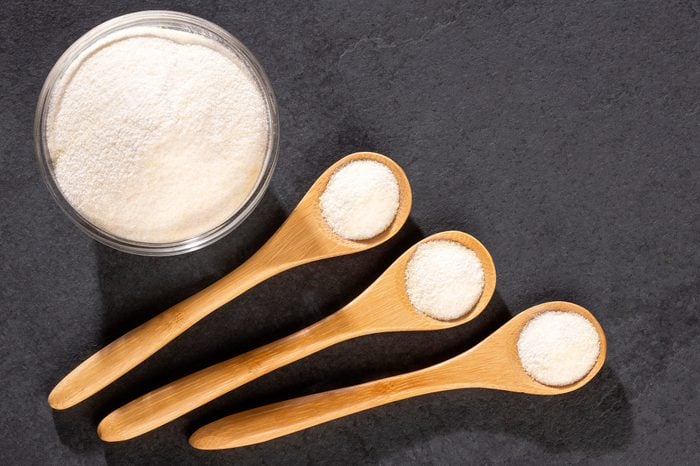
Collagen aplenty
“Collagen powder is going to be a beauty and food hit in 2020,” says Joan Salge Blake, EdD, RDN, a clinical nutrition professor at Boston University and host of the health and wellness podcast, SpotOn! “Emerging research using hydrolyzed collagen is beginning to show some anti-aging, collagen-boosting promise for skin by reducing wrinkles. This type of hydrolyzed collagen is not broken down into amino acids when consumed but rather absorbed intact. In this form, the hydrolyzed collagen can trigger cells to specifically generate more youthful collagen and elastin in your skin. The powder is tasteless so it can be used in your morning coffee or smoothie to start your day with a beauty boost.”
$28.00
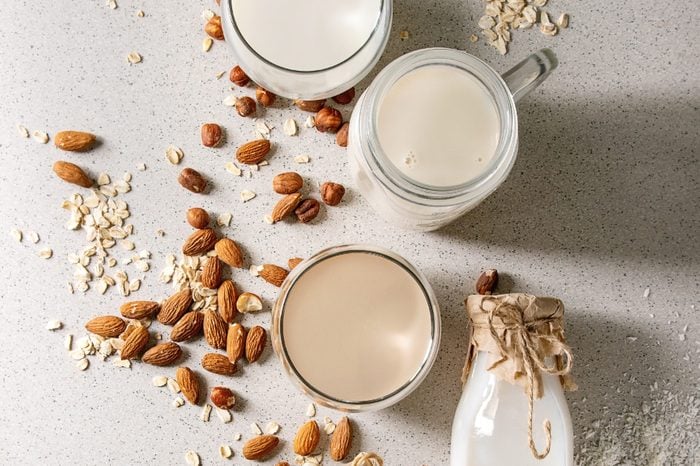
Plant-based dairy
In the Whole Foods Market list of top 2020 food trends, plant-based foods, including dairy substitutes, are noted as a top trend. “Plant-based milks continue to be a big trend,” notes Lisa Young, PhD, RDN, author of Finally Full, Finally Slim. “Lots of choices exist these days—including almond milk and other nut milks, as well as oat milk. These are good milk alternatives for those people who are lactose intolerant or who are vegan. I love using these milks in smoothies with mixed berries and greens. Because they don’t contain calcium naturally, I recommend calcium- and vitamin-D-fortified versions of these milks to get a boost of these nutrients.” You can drink the milks on their own, blend them into a latte, or use them as a base for a blueberry cauliflower smoothie. If you’re curious about what vegans eat find out here.
$34.99
Amy Gorin is a freelance writer, plant-based registered dietitian, and owner of Amy Gorin Nutrition in the New York City area. Connect with her on Instagram, Facebook, Twitter, and Pinterest.
